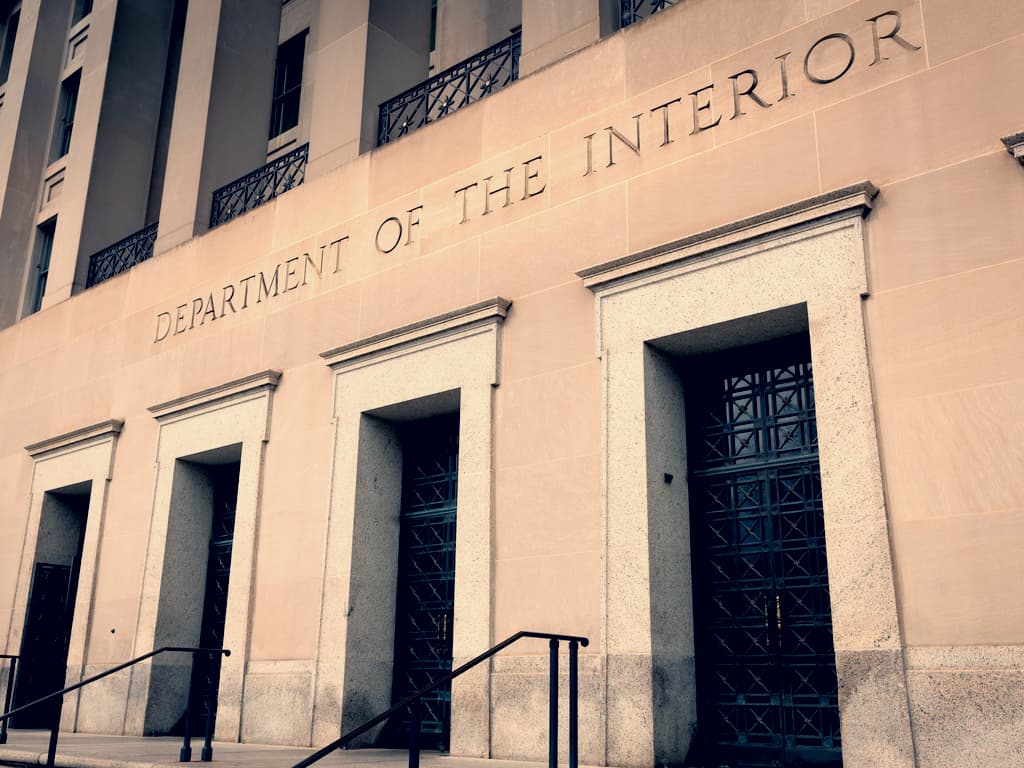
In a recent span of thirty days, the U.S. Department of Interior (DOI) and the Biden Administration announced no fewer than seven key policy proposals with the potential to greatly benefit tribes, tribal organizations and Native-owned businesses. Here’s an overview of each one, with guidance in some cases on how to provide input in the decision-making process.
Recognizing that DOI and the U.S. Department of Agriculture (USDA) will benefit by incorporating Tribal expertise and Indigenous knowledge into federal land and resources management, the departments are urging Tribes to submit Tribal proposals and ideas on how to best manage the millions of acres of Federal lands and water that were previously owned and managed by Indian Tribes. Last November, the Interior and USDA issued Order No. 3403 a “Joint Secretarial Order on Fulfilling the Trust Responsibility to Indian Tribes in the Stewardship of Federal Lands and Waters.”
In a collaboration with DOI and Oklahoma State University, USDA is developing and regularly updating a tribal treaty rights database to better understand and fulfill treaty rights obligations. During the 2021 White House Tribal Nations Summit, President Biden announced that the Interior and sixteen other federal agencies formally committed to protecting Tribal treaty rights in agency policymaking and regulatory processes, formalized in the “Memorandum of Understanding regarding Interagency Coordination and Collaboration for the Protection of Tribal Treaty Rights and Reserved Rights.” Tribes whose treaties contain federal promises that have gone unperformed are encouraged to contact the USDA Tribal Relations team.
DOI announced new regulations to improve implementation of the Buy Indian Act to promote economic development opportunities in Indian Country. This Act allows the Interior to set aside certain opportunities for Indian-owned and controlled businesses, and seeks to eliminate barriers to Indian Economic Enterprises (IEEs) from competing on certain construction contracts, expand IEEs’ ability to subcontract construction work consistent with other socio-economic set-aside programs, and give greater preference to IEEs when a deviation from the Buy Indian Act is necessary. These regulations also align with the Indian Health Service providing consistency and streamlining the procurement procedures for Native-owned businesses.
DOI also announced the forthcoming release of a proposed rule governing Appeals from Administrative Actions at 25 C.F.R. Part 2, to include when and how the DOI Assistant Secretary – Indian Affairs (AS-IA) will take jurisdiction over an Interior Board of Indian Affairs (IBIA) action. Tribes should keep an eye out for these forthcoming updates.
On March 28, 2022, the AS-IA announced Tribal consultation sessions regarding draft amendments to the regulations governing both the fee-to-trust process and Class III gaming compacts. The proposed changes to the fee-to-trust regulations at 25 C.F.R. Part 151 are intended to clarify the Secretary’s authority to take land into trust for Tribes, reduce processing time, and establish clear decisions-making criteria, with a special focus on taking land into trust for conservation purposes. The proposed changes would build on Secretary’s Order 3400 re-delegating the authority to review and approve applications to place land into trust to the BIA regional directors. The proposed changes to the Class III gaming compact regulations at 25 C.F.R. Part 293 are intended to provide clarity on the criteria the Interior will consider when deciding whether to approve compacts by clarifying boundaries of allowable topics of negotiation, better defining key terms, and clearly outlining when the Interior must review a gaming compact.
The Department will conduct four virtual consultation sessions between May 9 and May 23 and will accept oral and written comments. Written comments should be submitted by 11:59 pm ET on Thursday, June 30, 2022, to the Bureau of Indian Affairs by email.
DOI Secretary Deb Haaland on April 7, 2022, rescinded a nearly 50-year old moratorium on the federal approval of Tribal water codes, restoring Tribal authority to adopt water laws to regulate water use on their own lands. Tribes should keep an eye out for more information on upcoming Tribal consultations regarding this important issue.
Finally, DOI announced its approval of the first-ever Tribal Energy Development Organization (TEDO) issued to the Red Lake Band of Chippewa Indians. This makes the Tribe the first to receive such approval and will support the Tribe’s effort to develop renewable energy resources. TEDOs provide an avenue to reclaim Tribal authority by allowing Tribes to enter into and manage energy-related leases, rights-of-way and business agreements without obtaining the burdensome DOI approval for each individual lease, right-of-way, or agreement.
It’s clear from these actions that the Biden Administration’s policymakers are active with many initiatives impacting tribes, tribal organizations and Native-owned businesses, many of which could prove of significant value in the coming years.
Patrick Ross, Senior Manager of Marketing & Communications
EmailP: 619.906.5740
Suzie Jayyusi, Events Planner
EmailP: 619.525.3818